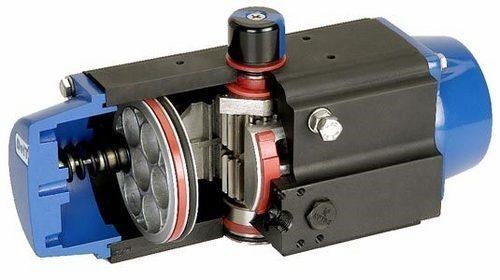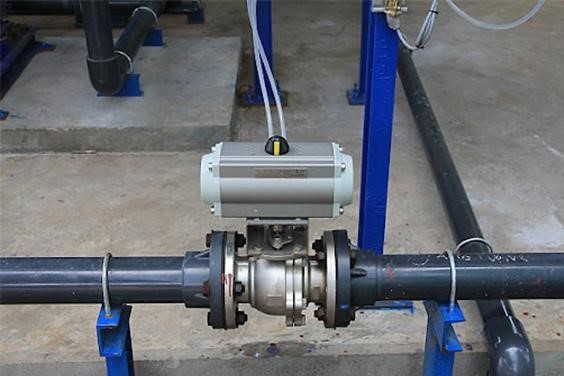Actuator valves are a fundamental component of modern industrial systems, offering precise control over the flow of various fluids and gases. However, understanding the diverse world of actuator valves can be overwhelming. In this comprehensive guide, we will explore the different types of actuator valves, their applications, and what sets them apart. Whether you’re a seasoned engineer or a novice in the field, this article aims to provide valuable insights into actuator valves. So, let’s dive in and unravel the fascinating realm of these essential devices.

At their core, actuator valves are devices that control the flow of fluids, such as water, oil, or gases, through a pipe or conduit. They are essential for regulating the flow rate, pressure, and direction of these substances in industrial processes. Actuator valves function as the “gatekeepers” of fluid and gas systems, allowing for precision and control.
Now, let’s explore the diverse landscape of actuator valves. There are several types and each of them is tailored to specific applications:
Ball Valves:
These valves use a spherical closure unit to control flow. They offer fast, reliable shut-off and are ideal for on/off control.
Butterfly Valves:
Butterfly valves feature a flat, circular disc that pivots to regulate flow. They are versatile and are commonly used in large pipelines.
Gate Valves:
Gate valves control flow with a gate-like wedge that moves perpendicular to the flow. They are suitable for applications requiring full flow or complete shut-off.
Globe Valves:
Globe valves have a spherical closure unit that moves up and down to control flow. They are widely used for precise flow control.
Check Valves:
Check valves allow flow in one direction only, preventing backflow. They come in various designs, including swing, lift, and ball check valves.
Diaphragm Valves:
Diaphragm valves use a flexible diaphragm to control flow. They are particularly effective for applications with corrosive or abrasive fluids.
Needle Valves:
Needle valves have a slender, tapered point at the end of the valve stem. They are used for fine flow control in low-flow applications.
Plug Valves:
Plug valves employ a cylindrical or conical plug to control flow. They are suitable for applications requiring minimal pressure drop.
Pinch Valves:
Pinch valves use a pinching mechanism to control flow. They are ideal for handling abrasive or corrosive fluids.
Actuator valves find applications in various industries, including:
Manufacturing Industry:
Actuator valves are crucial for controlling the flow of materials in manufacturing processes, ensuring consistency and quality.
Chemical Processing:
In the chemical industry, precise control of fluids is vital to prevent reactions or mixtures that could be dangerous. Actuator valves play a significant role in ensuring safety and efficiency.
Water Treatment:
Actuator valves regulate the flow of water and chemicals in water treatment plants, ensuring that potable water is safe for consumption.
Energy and Power Plants:
In power generation facilities, actuator valves control the flow of steam, water, or gases, optimizing energy production.
Oil and Gas Industry:
Actuator valves are integral in the extraction, refining, and transportation of oil and gas, where safety and precision are paramount.

Selecting the right actuator valve for your application involves considering several factors:
Type of Fluid:
Different fluids require different materials for the valve to prevent corrosion or contamination.
Pressure and Temperature: Valves must be capable of withstanding the pressure and temperature conditions of the specific application.
Flow Rate:
The valve’s size and design should match the required flow rate.
Control Mechanism:
Choose between electric, pneumatic, or hydraulic actuation, depending on the application’s demands.
Environmental Conditions:
Consider factors like exposure to the elements, vibrations, or potentially corrosive atmospheres.
Regular maintenance is crucial to keep actuator valves functioning optimally. This includes inspecting for leaks, corrosion, or worn parts and lubricating moving components. Proper troubleshooting procedures should be in place to address any issues promptly, minimizing downtime and ensuring operational efficiency.
The world of actuator valves is diverse and essential to various industries. Understanding the types and applications of actuator valves is vital for efficient industrial systems. When it comes to choosing the right actuator valves in the UAE, Mohsin Trading emerges as the best choice. With a reputation for excellence and a wide range of actuator valves to suit diverse needs, they are your trusted partner for industrial fluid and gas control. You can browse our website to look at our products or get in touch with our team at +971 4 2230269.